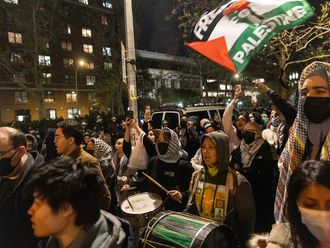Egyptian military owe it to the people to show that they can be an honest broker of Egypt's future
The astonishing events in Egypt have placed a huge responsibility on the armed forces to manage a transition to a new democratically elected government. The inspiring outburst of people power will have been profoundly frightening to an establishment and armed forces which were very comfortable with what they were doing, and they will not be ready to work with the ill-formed demands from the millions of protesters.
The inclusion of all political strands from across the spectrum and the organising of transparent elections will not be easy for two very different reasons. First, the army is not used to exercising political power, and has been so close to the outgoing regime of president Hosni Mubarak that it will inevitably want to tilt the elections in favour of the status quo. And second, the opposition forces in Tahrir Square have to develop quickly from being an inchoate demand for change into organised political parties able to articulate their demands into policies.
Even if the army is able to offer stability, its entrenched position in the Egyptian establishment means that it will find it hard to be a neutral arbiter of a future government. The head of the Supreme Council of the Armed Forces, Defence Minister and Field Marshal Mohammad Tantawi, had a close relationship with Mubarak. Tantawi will find it difficult to embrace the new and inclusive style of politics that the protesters in Tahrir Square have been looking for. His natural position will be to bolster the authority of the central government, which was made clear in WikiLeaks cables, which showed how Tantawi has resolutely "opposed both economic and political reforms that he perceives as eroding central government power".
Mubarak was right to realise that his personal departure would not have satisfied the people of Egypt, who would not have accepted his handing over power to Vice-President Omar Sulaiman, former head of Egyptian Intelligence. But choosing the armed forces was an easy way out for Mubarak. He could have found more acceptable transitional authority from the judiciary or the parliamentary speaker, but that would have also made the opportunity for genuine radical reform far more likely.
The various political and social elements that formed the protests in Tahrir Square now have become political parties. It will not be enough to get hundreds of thousands of people onto the streets. They will have to find leaders, who will need to formulate manifestos of policies which they can take to the people and seek their support. To allow this necessarily chaotic process to happen will be a very uncomfortable challenge for the military, but they owe it to the people who have held them in such respect throughout the past weeks, to show that they can be an honest broker of Egypt's future.








